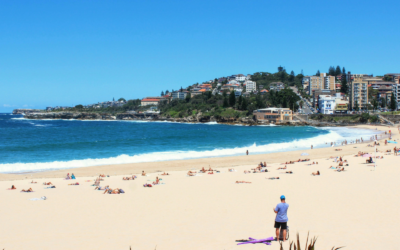Author: Jordan Canciani Editor: Abbie Simmons
The Australian Psychological Society (APS) reported there are simply too many undergraduate students, vastly exceeding the number of available postgraduate psychology programs.
In my experience as a 3rd year Bachelor of Psychology (Honours) student, there is limited opportunity towards a career in psychology, without an Honours.
On the 23rd of September 2024, the Australian government published a media release announcing that it would increase the number of postgraduate psychology places at universities and provide more psychology internships and supervisors.
Western Sydney University will receive 84 new places for psychology internships. These new investments to the psychology workforce aim to help remove barriers to studying and working in mental health industries.
The release identified that despite strong demand and interest from students, currently only 10 per cent will complete the required postgraduate programs to become a registered psychologist, due to the limited number of postgraduate university places.
MP Mark Butler, Minister for Health and Aged Care, stated, “Our commitment will address the shortage of registered psychologists and help develop the next generation of registered psychologists”.
The current sad reality is that many students are often deterred by the long and arduous path of obtaining the necessary training to become a registered psychologist.
To become a registered psychologist in Australia, a three-year undergraduate degree, a fourth year Honours equivalent and a postgraduate Master’s degree is needed to fulfill competency requirements and registration as a psychologist with the Australian Health Practioner Regulation Agency (AHPRA).
Students in the Bachelor of Psychology (Honours) program must meet certain requirements to articulate into the Honours section of the program, which is then a requirement for a postgraduate degree. Entry to the fourth year of the Bachelor of Psychology (Honours) is limited only to students who have achieved an Average Admission Mark of 70+ in Level 2 and 3 Psychology subjects. Students who have successfully completed the first three years, but who do not achieve this standard, or do not accept a place in the Honours program, will graduate with program 1904 Bachelor of Psychological Science (exit only).
Acceptance into masters is very competitive and your career progression is not guaranteed. This career pathway consists of rigorous research, training, unpaid placements, ongoing out-of-pocket supervision, endorsement registrar programs, and exams.

(Many students are often deterred by the long and arduous path of obtaining the necessary training to become a registered psychologist | Photo: Tara Winstead)
I believe students would benefit from increased support from the government and transparency from schools and universities regarding what a psychology degree entails. Whether that consists of more information regarding the pathway, more discourse regarding the competitive nature, education associated costs and the high academic achievement necessary to achieve honours and master’s degrees.
My advice to all students considering or currently pursuing a career in psychology: embrace the challenges and remember to appreciate the journey as much as the destination. Your passion and desire to understand the human experience is what makes this field so vital and irreplaceable.
I am hopeful that the government, universities, and associated bodies will continue to commit to making it an easier path for the next generation of psychologists. Following this recent media release, it seems closer than ever before.
For now, I wish all my fellow undergraduate psychology peers the best with their studies.
If you are a student interested pursuing the psychology pathway and need more information regarding program information and admission requirements, contact the Future Students team at study@westernsydney.edu.au or call 1300 668 370 (Press 4) and they will be able to provide accurate program information for psych study progression.
If you are struggling and need support, I encourage you to seek support through the following helplines:
Lifeline (13 11 14)
Beyond Blue (1300 22 4636)
Western’s Counselling Service (1300 668 370).



